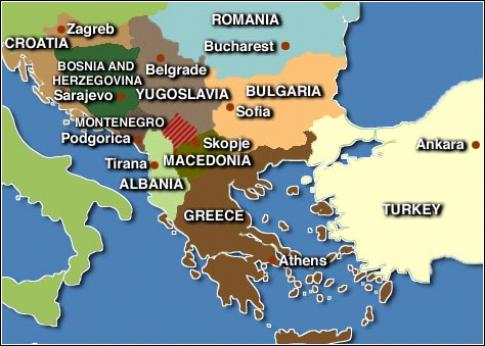An arrest in Serbia

But the real game-changer in its co-operation with the tribunal was the country’s growing desire to join the European Union.
Another long manhunt has ended with the arrest of Ratko Mladic, the “butcher of Bosnia.” Unlike Osama bin Laden, the former chief of the Bosnian Serb army was not behind incidents of global scale. But he is held responsible for an incident known as the worst single atrocity in Europe since World War II — the slaughter of 7,500 Bosnian Muslim men and boys at Srebernica in 1995. For this, he has been indicted by The Hague tribunal, an international court set up in 1993 to prosecute crimes committed during the Yugoslav wars of the 1990s. A key member of the Serbian leadership during those years, Mladic had evaded arrest since 1995, apparently with ease, especially after slipping into Serbia during the reign of his friend, President Slobodan Milosevic. The 2000 ouster of Milosevic and his subsequent extradition to The Hague laid the ground for Serbia’s agreement with the tribunal to hand over war crimes suspects.
But the real game-changer in its co-operation with the tribunal was the country’s growing desire to join the European Union. Of the constituents of the former Yugoslavia, Slovenia was admitted in 2004, while Croatia, Macedonia, and Montenegro are on the road to membership. A year after the 2008 arrest of the Bosnian Serb leader Radovan Karadzic, Serbia applied for EU membership in 2009. But its failure to hand over Mladic was a stumbling block. Even though the unresolved Kosovo question could still trip up its European dream, and one last Serbian fugitive still remains at large, the Mladic arrest will incline the EU to take a positive view of Serbia’s candidacy when it meets to discuss the membership later this year.
The elements of Serbia’s struggle to transform itself from an outlier in order to be accepted as part of the modern European community have striking parallels with another country — an entrenched military; a powerful intelligence agency; a network of officials with delusions of ethnic supremacy; an economic crisis; ultra-nationalist public attitudes dominated by the sentiment that the country is being made a whipping boy by the West; and, to top it all, a weak political class. A Prime Minister was assassinated in 2003 for promising to hand over war crimes suspects.
The difference between Serbia and Pakistan — aside from the smallness of one and the global implications of the crisis in the other, not to mention its nuclear arsenal — is that since 2008, one of them has had a leader unafraid to challenge the military and the nationalist forces, and is credited with thus bringing a change in public opinion. Were it that it was Pakistan. Hindu News




 del.icio.us
del.icio.us Digg
Digg

Post your comment